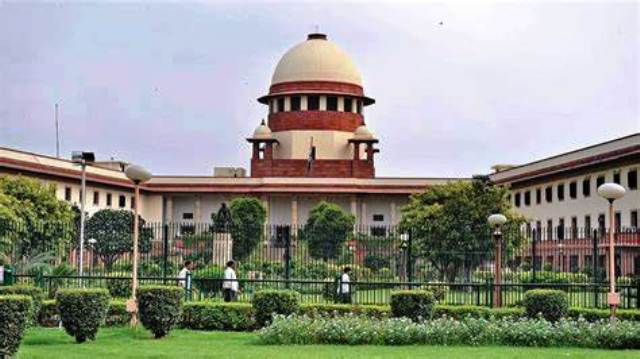New Delhi: The Supreme Court on Tuesday cut short the government’s “value judgment” that genitals decide whether a person is a man or woman, saying that there was no “absolute concept of a man or an absolute concept of a woman” and that gender was “far more complex” than one’s genitals.
A Constitution Bench headed by Chief Justice of India D.Y. Chandrachud was responding to the Centre’s argument that laws, including the Special Marriage Act, recognised only heterosexual marriages between a “biological man and a biological woman”.
“You are making an important value judgment that the notion of a biological man and the notion of a biological woman is an absolute,” Chief Justice Chandrachud addressed Solicitor General Tushar Mehta, appearing for the government.
“But a ‘biological man’ means a biological man, it is not a notion,” Mr. Mehta protested.
“Of course it is. There is no absolute concept of a man or an absolute concept of a woman at all… A man or a woman is not a definition of what their genitals are, it is far more complex. Even when the Special Marriage Act says ‘man’ and ‘woman’, the very notion of a man and a woman is not an absolute on what genitals you have,” Chief Justice Chandrachud shot back.
But Mr. Mehta continued to submit that a “biological man means the genitals one has”, though adding that he did not want to use that “expression”.
He argued that the law differentiated between a man and a woman. “Your Lordships will have to otherwise decide that marriage is a fundamental right de hors (not including) the law,” the Solicitor General said.
The government argued that society may not accept that same-sex marriages ought to be on par with heterosexual marriages.
Justice Sanjay Kishan Kaul, one of the Associate Judges on the five-judge Bench, said that it was “not mandatory that the whole society should accept something” for the Court to recognise rights.
“But several Acts would become unworkable… I may have the biological attributes of a man, but I consider myself a woman… Should the Code of Criminal Procedure treat me as a woman then?” Mr. Mehta questioned.
The bench said though 10 petitioners wanted it to be dealt with on a broader aspect “we are restricting it and we are not going into personal laws etc”.
The law officer contended the bench was saying it will not go into the personal laws but the earlier judgments opened this window and so again this would open another window later.
“But we cannot bind our future generations long after we are gone and turned to dust,” the bench observed.
The law officer said the court should decide first whether it can go into this question at all or it would be essentially for parliament to deal with it.
“I am sorry Mr. solicitor, we are in-charge,” the CJI told Mehta, and added, “You cannot dictate how we will conduct the proceedings. I have never allowed this in my court.”
“Laws will change, society will evolve and the courts need to rule when called upon by citizens who seek recognition of their fundamental rights to equality and equal treatment to lead a dignified life… We seek a declaration that we have a right to get married. This should be recognised by the state by virtue of an imprimatur of the court. Our right should be made part of the Special Marriage Act. Once that happens society will recognise that we have equal rights. Then two people can hold hands and walk in the streets without social stigma following them everywhere,” Mr. Rohatgi submitted.
He said that it was not enough to remove criminality from the bedrooms of same-sex partners. “We want to enjoy the full panoply of rights available to our heterosexual brethren. We want to enjoy the unit of family. We want privacy and freedom to move freely. The government cannot treat us as lesser mortals and tell us to remain content just because homosexuality has been decriminalised,” Mr. Rohatgi said.
He said that the petitions were not delving into the personal laws of different religions, but only seeking a wider interpretation of the Special Marriage Act to include same sex marriages.

















